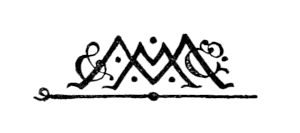FRENCH & ENGLISH

FRENCH & ENGLISH
A Comparison
BY
PHILIP GILBERT HAMERTON
AUTHOR OF ‘THE INTELLECTUAL LIFE,’ ETC.
London
MACMILLAN AND CO.
AND NEW YORK
1889
All rights reserved
ADVERTISEMENT
In the years 1886 and 1887 the author contributed a series of sevenarticles to the Atlantic Monthly, which bore the title ofthe present volume, and are in great part absorbed in it. The book,however, is essentially new, as it contains much more matter than thearticles, and the chapters are either hitherto unpublished or rewrittenin a less desultory order.
This work is not intended to be historical. It only professes tocompare the French and English of the second half of the nineteenthcentury.
[Pg vii]
PREFACE
It may be taken as typical of the author’s intentions that he has feltuncertain which of the two nationalities he would put first in thetitle, and that the question has been decided by a mere considerationof euphony. If the reader cares to try the experiment of saying“English and French,” and “French and English” afterwards, he willfind that the latter glides the more glibly from the tongue. There isa tonic accent at the beginning of the word “English” and a dying awayat the end of it which are very convenient in the last word of a title.“French,” on the other hand, comes to a dead stop, in a manner tooabrupt to be agreeable.
The supercilious critic will say that I am making overmuch of asmall matter, but he may allow me to explain why I put the Frenchmenfirst, lest I be accused of a lack of patriotism. This book has not,however, been written from a patriotic point of view; it is notsimply an exposition of the follies and sins of another nation forthe comparative glorification of my own, neither is it an example ofwhat Herbert Spencer has aptly called “anti-patriotism,” which is thesystematic setting down of one’s own countrymen[Pg viii] by a comparison withthe superior qualities of the foreigner.
I should like to write with complete impartiality, if it were possible.I have at least written with the most sincere desire to be impartial,and that perhaps at the cost of some popularity in England, for certainEnglish critics have told me that impartiality is not patriotic, andothers have informed me of what I did not know before, namely, that Iprefer the French to my own countrymen.
It seems to me that the best patriotism does not consist in speakingevil of another country, but in endeavouring to serve one’s own. Thereare many kinds of service. That of a writer is above all things totell the truth and not to deceive his countrymen even when they wishto be deceived. If he fails in veracity he is guilty of a kind oftreachery to his own country by giving it erroneous ideas or fallaciousinformation. Such treachery may become serious when the subject ofthe volume i